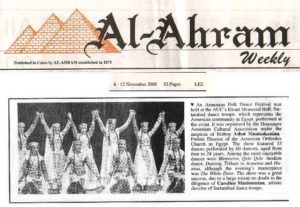1962 Saudia Arabia/ Lydda, Ramleh
“In Memory of the Fifteenth of May 1948, What is the Road Back to Palestine and When?”:
“All the Arab Governments followed the mood that wanted war, but they had no will for war.
“They dreamt of war in the official proclamations issued by their commanders, but on the battlefield itself they avoided war.
“The reason was not a shortage of manpower or arms. The position of our Commands was in striking contrast to the position of the enemy’s Command.
“THE ARAB GOVERNMENTS HAD MORE ARMS THAN DEVOTION TO THE OBJECTIVE, WHILE THE ENEMY HAD MORE DEVOTION TO THE OBJECTIVE THAN ARMS.
“It is not true that seven Arab armies were thrown into battle, as Israeli propaganda now alleges.
“The army of Yemen was not there at all.
“The army of Saudi Arabia contributed one company of the Royal Guard, whose glorious deeds in battle consisted only of the acts of one officer, who, after raising his voice in prayer to Allah, ventured to slaughter one or two of the inhabitants of the Jewish settlement of Be’erot Yitzhak.
“The Lebanese Army kept itself to itself, with its one battalion on the Lebanese side of the frontier.
“The Syrian army was full of fervour, after its unfortunate experience at Samakh, but it was leaderless.
“There were left, therefore, two armed forces:
“The Hashemite Army forces, including those of Jordan and Iraq, commanded by the British and the powers of treachery.
“The forces of the Egyptian Army, the Supreme Command of which was in the control of ignorance, folly and the arms trade.
“When the position became more serious, and through the circumstances of the fighting the Egyptian forces emerged from the control of the Supreme Command and could fight and achieve substantial results, Hashemite treachery did not allow them to do so: King Abdallah made common cause with Israel, he secretly met with her leaders, and then evacuated Lydda and Ramleh, exposing the flank of the Egyptian Army, while the Iraqi Army sat still, inactive and depressed, under the well known watch-word ‘No Orders’…
“The cunning of all the Arab Governments was directed more against their people than against their enemy.
“King ‘Abd al-‘Aziz al-Sa’ud was prepared, as he put it, to slaughter his eldest son, but he was not prepared, even as a tactical threat, to stop the supply of oil so long as justice had not been done.
“The kings of the Hashemite family were prepared – according to their tradition – to weep and wail, but they were not prepared to change their ways and put an end to their treachery and their ties with the enemy.
“King Faruq was prepared to permit the Egyptian army to go to Palestine – perhaps because of the will to adventure or the desire to get rid of it, but he was not prepared to allow that army to win.
“The rulers of Lebanon were not prepared for anything at all.
“THE IMAM OF YEMEN AT THE TIME – LIKE HIS HEIR TODAY – WAS INTERESTED ONLY IN SURRENDERING TO NARCOTIC DRUGS AND THE ILLUSIONS OF HIS IMAGINATION.
“Our fears were realized. Nothing else could have been expected: Palestine was lost.
“And then we tried to console ourselves by calling 1948 the year of disaster. This term itself reflected the desire to evade responsibility and blame destiny, while destiny is innocent, but we wanted to continue to evade and escape.
“We placed the responsibility on the strength of the enemy, when the strength of the enemy was only the creature of our imagination.
“I have already said and I say again: more than the enemy succeeded in defeating us on the battlefield, we defeated ourselves.
“Our weakness – rather than the enemy’s strength – was the powerful factor in the final result…When we talk of the defeat, weakness and surrender of 1948, it would be mistaken and dangerous to attribute the whole affair to the military sphere and limit it to what happened on the battlefield in Palestine. The military operations in Palestine were only a mirror of the social, economic and political situation which existed at the time in the Arab capitals.
“The Arab world was then ruled by reactionary strata, which exploited their peoples and controlled their resources, or most of them.”
Source: 36, pp. 380-81.




